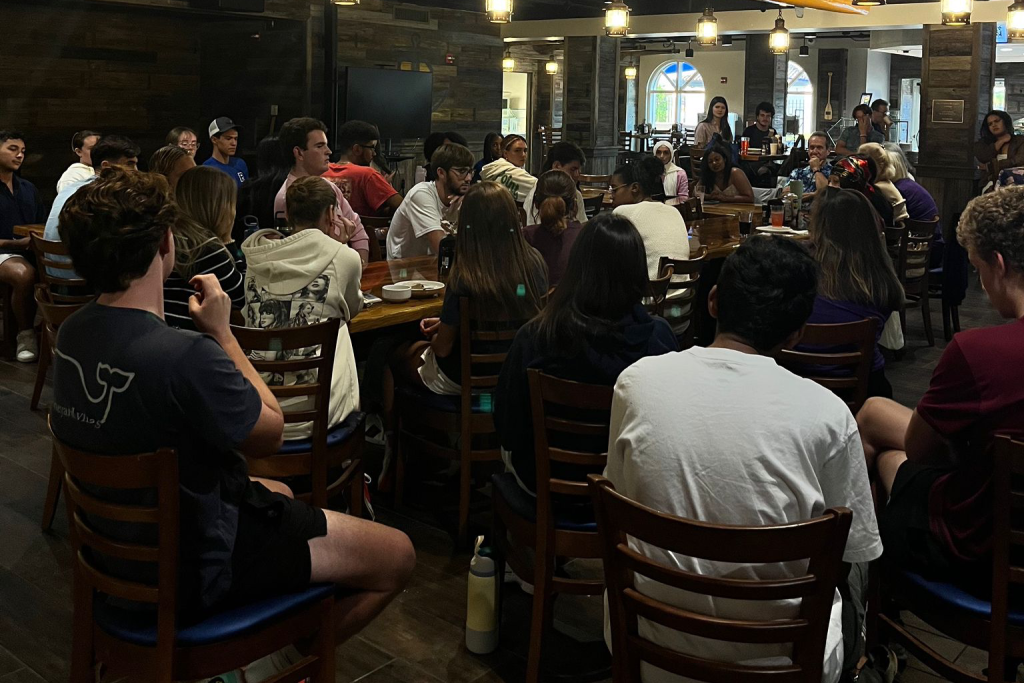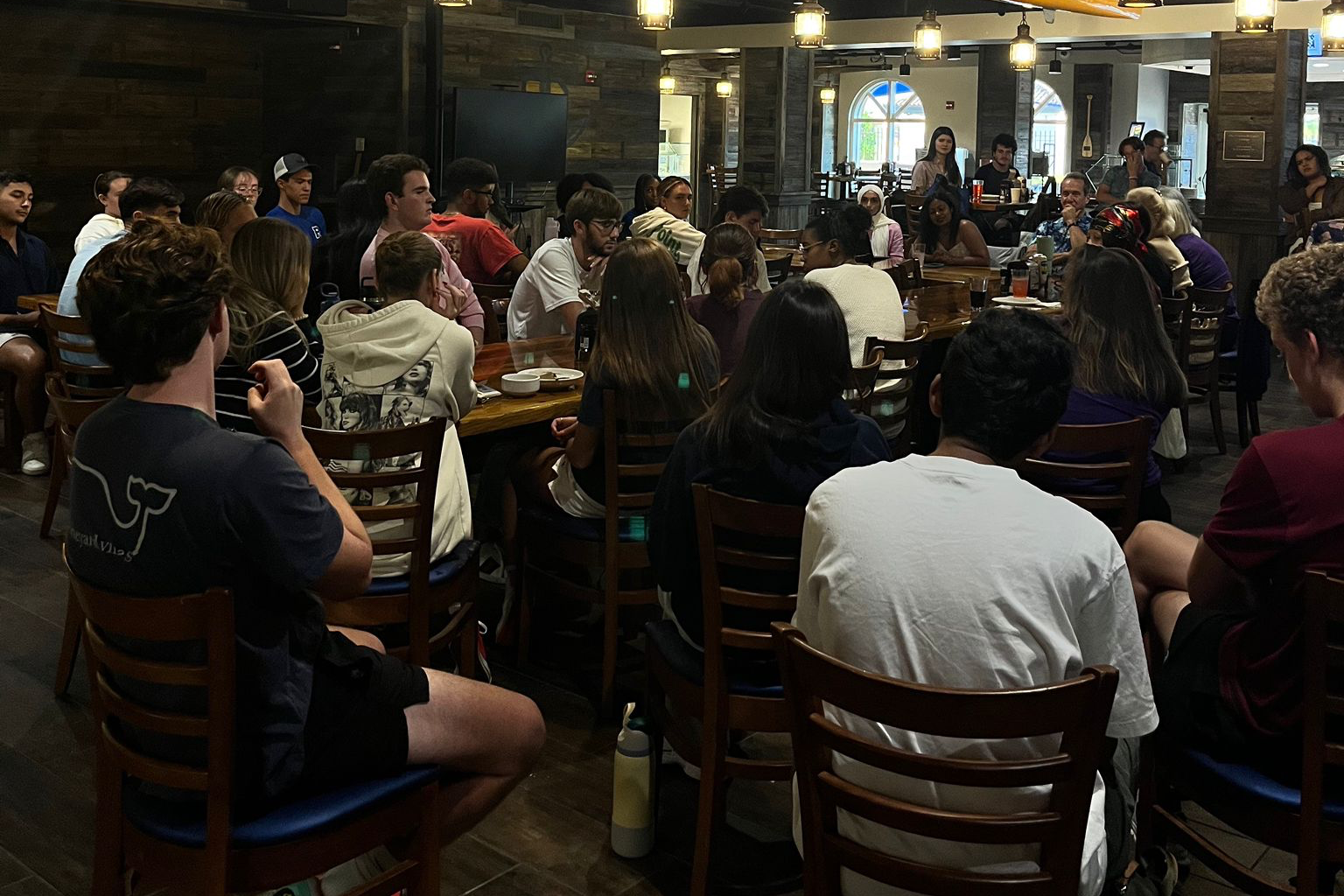
The moody golden light and dark furniture set the stage as faculty and students alike gathered in Dave’s Boathouse for the first Politics on Tap event of the 2024-2025 academic year. Slices of pizza crowded the table as latecomers pulled chairs around the edge of the circle just to hear guest speakers, Tahmina Rahman and David Painter, discuss the year’s first topic.
Politics on Tap is “a casual space to come and learn about interesting (and sometimes sensitive) topics,” says Stella Morris (‘26), Rollins’ Democracy Project Coordinator. The September 19 discussion, which ran from 6-7:30 p.m., focused on the topics of populism, polarization, and political violence—topics which Rahman and Painter both agreed will have a heavy influence on this year’s upcoming presidential election.
While no alcohol is involved in today’s Politics on Tap events, Morris explains the name came to be because “it takes place in Dave’s Boathouse, which is as close to and used to be the college bar.” She shared a story from her freshman year when alcohol was still being sold in Dave’s Boathouse and how each of the panelists had a beer in hand as they spoke on the topic. Now, she says, “the ‘Tap’ part is more ceremonial or historical.”
Moderated by Aimal Irteza (‘27), Professor Rahman of the political science department and Professor Painter of the communications department spent the 90 minutes answering questions from Irteza and from the students and faculty in attendance.
Polarization, defined by Merriam-Webster as “a state in which the opinions, beliefs, or interests of a group or society no longer range along a continuum but become concentrated at opposing extremes,” was the most popular topic of the night, with words such as “stereotypes,” “rhetoric,” and “dehumanization” being thrown out in relation to polarization.
Both speakers acknowledged the use of social media and news in the increase of polarization in the nation but credited social media as a tool for getting young people involved in elections. As the 2020 presidential election between Donald Trump and Joe Biden saw the highest voter turnout in the 21st century at 66.8 percent, it can be expected that, once again, November’s election will have record breaking numbers.
A common topic of discussion was education, with the general consensus of both the speakers and the audience that more-educated people lean liberal compared to less-educated people. A study from Pew Research Center supports this consensus as it found that as of 2023, on average, 55 percent of Americans who were college graduates were more likely to be liberal, compared to 42 percent of American college graduates who associated themselves with conservative-style politics.
Many students in the audience mentioned the faults of the education system when it comes to creating educated voters, and Painter shared that “because educators may fear being targeted by disgruntled students, parents, politicians, and the media if and when they discuss politics and social issues with their classes, co-curricular events, such as the Politics on Tap series, are critical to creating more educated young voters.”
As polarization, populism, and political violence all surround the upcoming elections, Painter hopes that political violence will not occur but admits that after the January 6 insurrection, “there is certainly no guarantee. That said, polarization is the most powerful force shaping the 2024 election as many people from both parties perceive their counterparts to be morally wrong.” He adds, “polarization provides populism with a fertile ground to grow and flourish,” highlighting the significance the election holds for the three topics.
If you are interested in attending a Politics on Tap event and missed this one, don’t worry. Politics on Tap is a monthly event. The next panel, which will revolve around LGBTQ+ rights and legislation, will take place on October 17, once again in Dave’s Boathouse, and food and drinks will be provided. For more information and updates, make sure to follow the Democracy Project’s Instagram at @democracyprojectrollins.










Comments are closed.